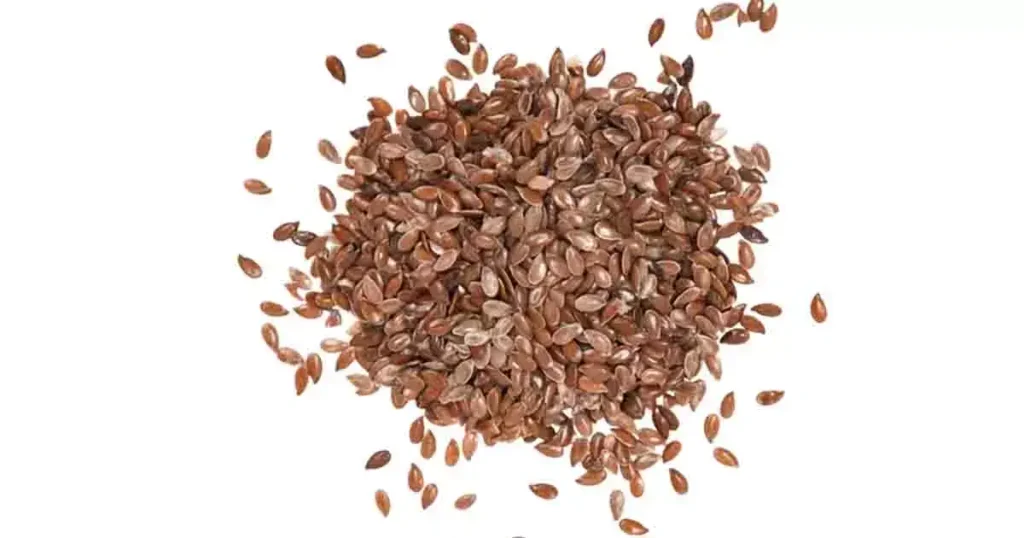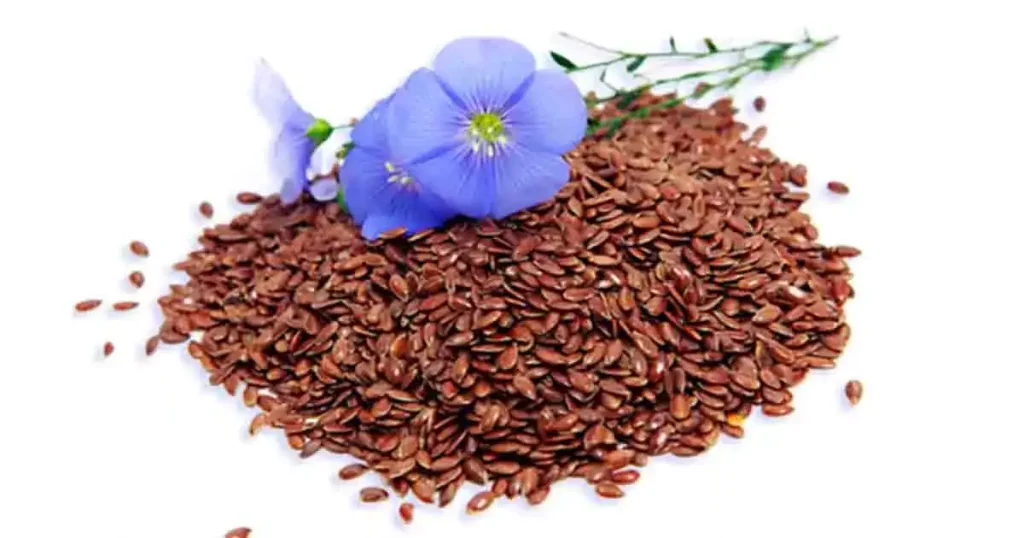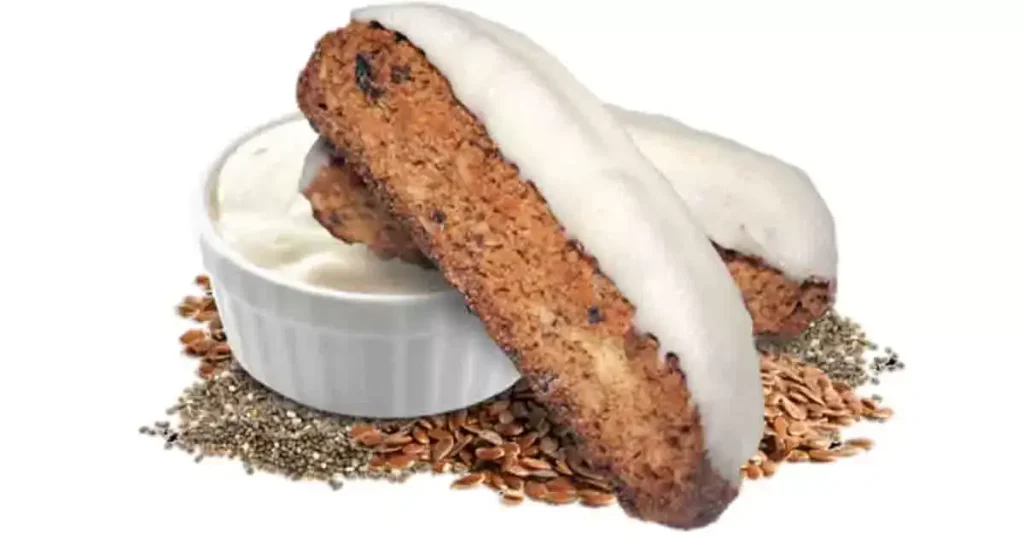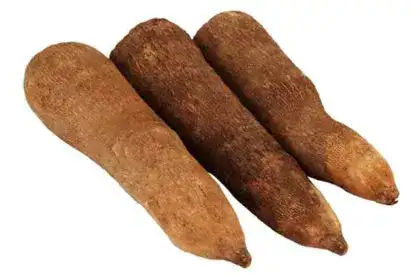From the article below, you can get information about flax plants and flax seeds, like – flax seeds in Telugu name, their cost, types, health benefits of flaxseeds, nutritional value, popularity, availability, etc.
Flax is a flowering plant known as linseed or common flax. The species comes under the Linaceae family and Linum genus. The temperate climate is suitable for cultivating flax, and this fiber crop is cultivated for food regions worldwide.

The oil comes from flax seeds, known as linseed oil. You can make textiles from flax, and that is called linen. Traditionally, linen is used for table linen, underclothes, and bed sheets. You can refer to the word ‘flax’ for the flax plant’s unspun fibers.
You can find many similarities (appearance-wise) in flax plants and some other species under the Linum genus. Some plants have the common blue flowers, and others have red, yellow, or white flowers.
Some flax plants are annual plants and are known as perennial plants. 3. Inch or 1.2 meters is the average length of a cultivated flax plant. The plants have slender stems. The color of the leaves is glaucous green, and they can grow up to 20 to 40 mm, and the maximum broadness is around 3 mm.
| English name | Flax |
| Telugu name | Aviselu |
| Binomial name | Linum usitatissimum |
| Kingdom | Plantae |
| Species | L. usitatissimum |
| Family | Linaceae |
| Order | Malpighiales |
| Genus | Linum |
Flax seeds in Telugu name
Aviselu is the Telugu name of flax seeds which is a very popular name in South India. People in Telugu-speaking areas ( Telangana, Andhra Pradesh, some parts of Puducherry, Karnataka, Tamil Nadu, and Odisha ) may not be familiar with the name flax seed.
Still, they can easily understand if you ask them for Aviselu. If you use the english name in restaurants, hotels, and the local area of a city, they can recognize the name, and reputable restaurants have various dishes in which flax seeds are used.
Various names of flax seeds are used in India in different languages. Other flaxseed names are Tishi in Bengali, Alsi in Punjabi, Hindi, Gujarati, Ali Vidai in Tamil, Agasi in Kannada, and Cheruchana Vithu in Malayalam.
Some Products of flax seeds
Click here to check products of flax seeds on amazon.
Health benefits of flax seeds
Flaxseed is a good source of fiber, omega – 3 fatty acids, and protein. These elements help to lose weight, prevent cancer, and decrease blood pressure and cholesterol.

This versatile seed has good nutritional value and provides so many health benefits. Some of the health benefits of flaxseed are –
1. Flax seeds have many nutrients
You can identify flaxseed as one of the oldest crops worldwide. Both the golden and brown flaxseed varieties provide almost equal nutritional value. You can get a good amount of omega-3 fatty acids, protein, vital minerals, vitamins, and fiber from just a serving of flaxseed.
Seven grams or one tablespoon of ground flaxseed have a good amount of energy, carbs, protein, fat, fiber, copper, thiamine, magnesium, manganese, phosphorus, selenium, zinc, iron, folate, and vitamin B6.
Vitamin B1, or thiamine, is the kind of vitamin that has an important role in cell functions and energy metabolism. Flaxseed is high in copper and thiamine. Copper helps in immune health, brain development, and iron metabolism.
2. Flaxseed has high omega – 3 fatty acid content
ALA, or alpha-linolenic acid, is one type of omega – 3 fatty acid. It is generally found in plant foods and helps to boost heart health. ALA is an excellent element present in flaxseed. The human body can’t produce ALA, which is one of the fatty acids among the two essential fatty acids.
So you have to obtain ALA from your diet. Based on some animal studies, the alpha-linolenic acid present in flaxseed helps prevent cholesterol deposition in the heart’s blood vessels and decreases inflammation levels.
According to a recent study, people who intake sufficient amounts of ALA regularly have a low chance of ischemic heart disease, stroke, and type -2 diabetes, and they have controlled cholesterol levels.
3. Flax seeds help to fight against cancer
Lignans are a type of plant compound. It has high properties which can fight against cancer. The value of lignan in flaxseed is high. It is a fact that flaxseed can boost lignans more than 80 to 800 times compared to other plant-based foods.
According to some studies, sufficient amounts of flaxseed can lower breast cancer risks in postmenopausal women. As per some test-tube animal studies, flaxseed helps avoid lung, colorectal, blood, and skin cancers.
4. Flax seeds are very rich in fiber content
Approximately 7 grams or one tablespoon of ground flaxseed contains 2 grams of fiber which is around 8% of the daily recommended intake for women and 5% of the daily recommended intake for men.
Flax seeds have both insoluble and soluble fibers. The fibers get fermented in your intestine by the bacteria. It helps to improve bowel regularity and support gut health.
The insoluble fiber in flaxseed helps add bulk to the stool, which promotes bowel movement regularly and reduces the problem of constipation. The soluble fiber content in flaxseed helps slow digestion and absorb intestine water. This process helps to reduce cholesterol levels and regulate blood sugar.
5. Flaxseed helps to low down the cholesterol level
Another health benefit of flaxseed is it helps to low down cholesterol levels. Based on a study of one month on patients suffering from peripheral artery disease, it is proven that consuming 30 grams or four tablespoons of milled flaxseed regularly can decrease the bad cholesterol level by 15%.
Based on a study on 112 people with high blood pressure for 12 weeks, it is proven that intaking 30 grams of flaxseed regularly can provide a significant reduction in total cholesterol level, BMI ( body mass index ), and blood pressure level.
It can happen due to the fiber content in flaxseed. Fiber helps to bind the salt in the body before its excretion by your body.
6. Flaxseed may help reduce the level of blood pressure
Because of its ability to reduce the level of blood pressure, it is very renowned. According to more than 15 studies, flaxseed products, including the powder of flax seeds with supplementation, may help slow down the level of diastolic and systolic blood pressure.
Flaxseed is very effective for people suffering from high blood pressure problems. Based on a study for 12 weeks, 30 grams or four tablespoons of flax seeds regularly can effectively reduce the blood pressure of those whose blood pressure is extremely high.
7. Flax seeds may help stabilize blood sugar levels
Flaxseed helps to promote blood sugar control and stabilize blood sugar levels. Based on 25 studies, whole flax seeds help prevent insulin resistance and reduce blood sugar levels. Insulin resistance is a condition that impairs the regulation of blood sugar levels in the body.
Because the soluble fiber content in flaxseed helps to slow down the blood sugar effect, according to some research, soluble fiber content slows the sugar absorption in the blood. This process helps to reduce blood sugar. Flaxseed is very helpful for type-2 diabetic patients.
You must use whole flax seeds in place of flaxseed oil. Because flaxseed oil has low fiber content as compared to whole flax seeds.
8. Flaxseed helps to maintain your desired weight
Based on some studies; flaxseed helps to aid weight management. You can control the overall appetite and decrease the feeling of hunger by consuming a flax fiber tablet which has a soluble fiber of 2.5 grams.
Soluble fiber helps to increase the fullness feeling and slow down the digestion process. This process is very helpful for people who want to lose weight. According to more than 40 studies, it is seen that supplements of flaxseed help significantly to reduce body mass index, belly fat, and body weight.
9. Flax seeds may help protect your body from chronic diseases
Because they contain beneficial fiber and fats, and they are high in polyphenols ( antioxidants that act as health protectors ). Polyphenols are the bodyguards of human body cells. They protect the body from cell damage which may lead to chronic diseases, aging, cancer, and heart diseases.
10. Flaxseed may help to ease arthritis symptoms
Based on the statement of the Arthritis Foundation, flax seeds help to ease joint stiffness and pain. It is helpful for Raynaud’s phenomenon, lupus, and rheumatoid arthritis.
The inflammation may reduce due to the presence of ALA in flax seeds. You can intake flaxseed in a ground form, as oil, and in capsule form.
11. Some other benefits of flaxseed
According to National Center for Complementary and Integrative Health ( NCCIH ), flaxseed can be helpful in cases of ovarian cancer, inflammation, diabetes, cardiovascular diseases, asthma, metabolic syndromes, etc.
It helps promote overall health, protects from cancer, restores the skin pH balance, and prevents some chronic diseases, ke – arthritis, diabetes, and atherosclerosis.
Nutritional value of flax seeds
The nutritional value of 100 grams of flax seeds –
| Nutritions | Values |
|---|---|
| Energy | 534 kcal |
| Protein | 18.29 grams |
| water | 7 grams |
| Fat | 42.16 grams |
| Polyunsaturated fat Omega – 6 fatty acids Omega – 3 fatty acids | 28.730 grams 5.9 grams 22.8 grams |
| Monounsaturated fat | 7.527 grams |
| Saturated fat | 3.663 grams |
| Carbohydrates | 28.88 grams |
| Dietary fibers | 27.3 grams |
| Sugars | 1.55 grams |
| Minerals | Values | % of the daily value |
|---|---|---|
| Zinc | 4.34 mg | 46% |
| Potassium | 813 mg | 17% |
| Phosphorus | 642 mg | 92% |
| Magnesium | 392 mg | 110% |
| Iron | 5.73 mg | 44% |
| Calcium | 255 mg | 26% |
| Vitamins | Quantity | % of the daily value |
|---|---|---|
| Vitamin B1 ( thiamine ) | 1.644 mg | 143% |
| Vitamin B2 ( riboflavin ) | 0.161 mg | 13% |
| Vitamin B3 ( niacin ) | 3.08 mg | 21% |
| Vitamin B5 ( pantothenic acid) | 0.985 mg | 20% |
| Vitamin B6 | 0.473 mg | 36% |
| Vitamin B9 ( folate ) | 87 micrograms | 22% |
| Vitamin C | 0.6 mg | 1% |
One hundred grams of Flax seeds have 42% fat, 7% water, 29% carbohydrates, and 18% protein. You can get 534 kcal of energy from the same amount of flax seeds. Flax seeds have a high level of dietary fiber, minerals, several vitamins, and protein. They are rich in phosphorus, magnesium, and thiamine.
Types of flax seeds
Generally, You can find two types of flax seeds worldwide. They are – brown flax seeds and golden flax seeds. You can get a slight and subtle nutty flavor from the golden flax seeds. On the other hand, brown flax seeds have the same taste but in a much bolder manner.
Golden flax seeds have less omega – 3 fatty acids and fat than brown flax seeds. You can see the cultivation of golden flax seeds in South and North Dakota.
It is easier to find brown flax seeds in stores than golden flax seeds. You can also find ground flax seeds and flaxseed oil from local stores. But their shelf life is very short.
Differences between brown flaxseed and golden flaxseed
| Brown flaxseed | Golden flaxseed |
|---|---|
| More robust flavor | Less robust flavor |
| Higher content of ALA | Less ALA compared to brown flaxseed |
| Bold flavor | slight and subtle nutty flavor |
| High content of total fat and omega -3 fatty acids | have less omega – 3 fatty acids and fat content |
| Easily available in many tores | Little difficult to find |
Cost of Flax seeds in Telugu areas
The cost of flaxseed in India varies depending upon the type ( whole, powder, brown flax, or golden flax ), quality, packaging, and the buying place (online stores, local markets, or marts ). Rs 80 to Rs 300 per kg is the approximate cost of flaxseed in India.
Rs 90 to Rs 200 is the average cost of 1kg of flaxseed in Andhra Pradesh. Rs 250 per kg is the approximate cost of flaxseed in Telangana. The cost is affordable because of the easy and heavy availability of flaxseed in India. Above 90% of places in Indian flax is cultivated.
Popularity and availability of Flax seeds in Telugu areas ( Telangana, Andhra Pradesh, some parts of Puducherry, Karnataka, Tamil Nadu, Odisha, etc.)
From India to the region extending from the eastern Mediterranean is the native of the very oldest cultivated crop, flax. The major flaxseed cultivator states of India are – Odisha, Jharkhand, Chattisgarh, Bihar, Madhya Pradesh, Maharashtra, Uttar Pradesh, Assam, Nagaland, and West Bengal. Approximately 97% of the total area of India is cultivated flaxseed.
So there is no lack of flaxseed in India or any Indian state. These flaxseed cultivator states provide the crop all over the country and also export to other countries. The largest flaxseed producer state of India is Madhya Pradesh.
Because of the inexpensive cost and immense health benefits, flaxseed is very popular in the Telugu-telling areas like – Telangana, Andhra Pradesh, some parts of Puducherry, Karnataka, Tamil Nadu, and Odisha, etc. Its versatility makes it more popular, and is very easy to use in any dish.
Popular recipes of Flax seeds in Telugu areas
This versatile seed can be used in smoothies, bakings, snacks, salads, oatmeal, breakfast bars, and granola. You should avoid cooking flaxseed because it has a very low smoking point. Flaxseed has a nutty but mild flavor. It adds a crunchy and crisp element to any dish. Its use in any dish can enhance the texture and taste.

Some flaxseed recipes are – flaxseed and blueberry oatmeal, chia, and flaxseed pudding, flaxseed rice, flaxseed oatmeal pancake, crunchy flax seed crackers, flaxseed ladoo with jaggery, flaxseed twisty sticks, flaxseed muffins, keto flaxseed bread, vanilla flaxseed cereal, etc.
Final verdict
Flax seeds contain nutrients, including fiber, omega-3 fatty acids, and vital plant compounds ( lignans ). These elements provide so many health benefits to human beings.
This small seed can protect your body from various cancers, improve digestive health, lower cholesterol and blood pressure, and stabilize blood sugar. You can easily add this delicious and versatile crop to your regular diet. Flax seeds in Telugu are called Aviselu.
The enormous health benefits of this powerful superfood are eye-catching. You can use every part of the flax plant in the form of flax fiber, flaxseed oil. The oil is used in carpentry and woodwork.
Hope you got all kinds of information about flaxseed from the above article. Like – as Flax seeds in Telugu, their cost, types, health benefits, the nutritional value of flaxseed, popularity, and availability, etc.
Frequently asked questions
1. Discuss some health benefits of flax seeds.
1. Flax seeds have a high amount of nutrients.
2. Flaxseed may help to ease the arthritis symptoms.
3. Flax seeds may help to protect your body from chronic diseases.
4. Flaxseed helps to maintain your desired weight.
5. Flax seeds may help to stabilize the levels of blood sugar.
6. Flaxseed may help to reduce the level of blood pressure.
7. Flaxseed helps to low down the cholesterol level.
8. Flax seeds are very rich in fiber content.
9. Flax seeds help to fight against cancer.
10. Flaxseed has high omega – 3 fatty acid content.
2. What is the taste of flaxseed?
Flaxseed has an excellent taste and can be used in both savory and sweet dishes. The seeds have a slightly nutty and mild flavor. You can have a nutty essence in the brown and golden flax seeds. The golden or yellow flaxseed is on a little sweeter side, but the brown flaxseed has a more toasty aspect. It is not an overpowering seed at all.
3. What are the buying and storing procedures of flaxseed?
You must look for proper or airtight packaging for flaxseed because the flaxseed oil, flaxseed meal, and flaxseed can degrade because of prolonged exposure to light, which is light-sensitive. You should check the date of manufacture and date of expiry before buying.
You can store the whole flaxseed for up to a year at room temperature. But the grounded flaxseed or flaxseed meal has to be used quickly or as soon as possible. Flaxseed oil also can’t store for a longer period. So try to buy in small quantities. You can buy whole flaxseed in heavy quantities. Ground it in less quantity.
4. How to incorporate flaxseed into your regular diet?
You can use both the flaxseed oil and flaxseed easily in various recipes. Like –
1. You can add flaxseed to your veggies and meat patties and grill them.
2. Take a little water and add flaxseed. It can be a substitute for the egg.
3. You can sprinkle flaxseed into the yogurt to give it a crunchy texture.
4. You can make baked goods into a healthy touch by mixing flaxseed into loaves of bread, muffins, and cookies.
5. You can also sprinkle flaxseed powder into your smoothie or add roasted whole flaxseed.
6. Add grounded flaxseed to cold and hot cereal for extra flavor and fiber.
7. Add flaxseed oil to fresh salad for dressing purposes.
5. How does flaxseed fight against cancer?
Lignan is a type of plant compound. It has high properties which can fight against cancer. The value of lignan in flaxseed is high. It is a fact that flaxseed can boost lignans more than 80 to 800 times compared to other plant-based foods.
According to some studies, sufficient amounts of flaxseed can lower breast cancer risks in postmenopausal women. As per some test-tube animal studies, flaxseed helps avoid lung, colorectal, blood, and skin cancers.
6. What are the flaxseed recipes?
Some flaxseed used recipes are – flaxseed and blueberry oatmeal, chia and flaxseed pudding, flaxseed rice, flaxseed oatmeal pancake, crunchy flax seed crackers, flaxseed ladoo with jaggery, flaxseed twisty sticks, flaxseed muffins, keto flaxseed bread, vanilla flaxseed cereal, etc.
7. How does flaxseed help to stabilize the blood sugar level?
Flaxseed helps promote blood sugar control and stabilize blood sugar levels. Based on 25 studies, whole flax seeds help prevent insulin resistance and reduce blood sugar levels. Insulin resistance is a condition that impairs the regulation of blood sugar levels in the body.
Because the soluble fiber content in flaxseed helps to low down the blood sugar effect, according to some research, soluble fiber content slows the sugar absorption in the blood. This process helps to reduce blood sugar. Flaxseed is very helpful for type-2 diabetic patients.
You must use whole flax seeds in place of flaxseed oil. Because flaxseed oil has low fiber content as compared to whole flax seeds.

